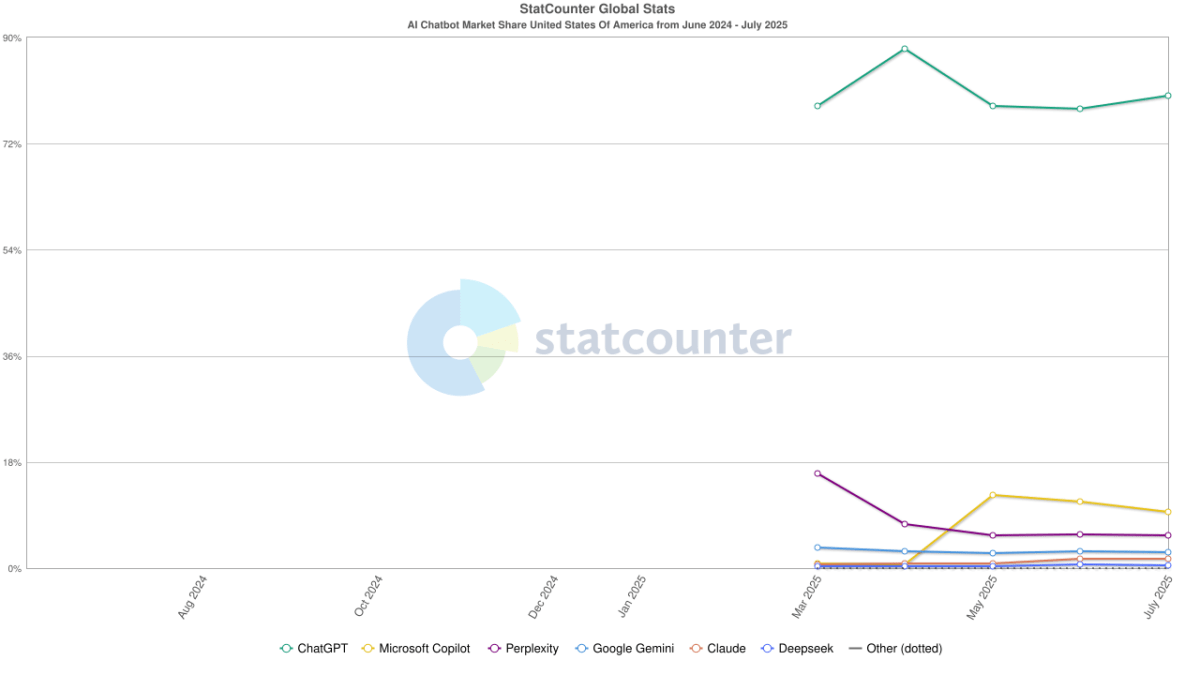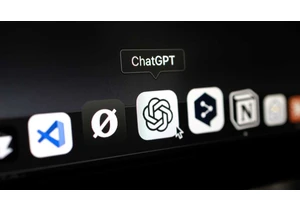It might seem that “ChatGPT” is all you ever hear about when discussing AI chatbots, also known as LLMs. As it turns out, that’s reflected in the real world, too.
Statcounter, which tracks the market share of operating systems, browsers, social media sites, and more, has begun tracking the number of sessions by users who visit artificial intelligence sites like ChatGPT, Google Gemini, Claude AI, Microsoft Copilot, and more. The winner, not surprisingly, is ChatGPT, by an enormous margin: over 80 percent and climbing, which coincides with our own chatbot tests.
Statcounter began tracking the statistics in March, and they’ve roughly remained the same since then: ChatGPT absolutely dominates, with a cluster of smaller AI chatbots below. So far, the only major change seems to have been Perplexity AI, which captured 16 percent of U.S. users in March, but has dropped to about 6 percent since then. Microsoft’s Copilot has risen, beginning at under 1 percent and now capturing about 10 percent of the market.
For the U.S,, the Statcounter numbers break down as follows: in July, 80.22 percent of U.S. chatbot sessions went to ChatGPT, 9.51 percent to Copilot, 5.61 percent for Perplexity, 2.67 percent to Google Gemini, and 1.56 percent to Claude, with Deepseek capturing just 0.43 percent.

Statcounter
Though those numbers reflect the market share for U.S. users, the picture doesn’t differ that much when viewed from a worldwide perspective. There, ChatGPT’s market share rises to 82.69 percent, followed by Perplexity at 8.06 percent and Copilot (4.56 percent). Gemini (2.2 percent) and Deepseek (1.59 percent) captured the remainder of the sessions Statcounter tracked, with Claude bringing up the rear at 0.91 percent.
To be fair, however, it’s not clear how Statcounter arrives at its numbers for tracking AI chatbots. In terms of sample size, Statcounter’s global statistics are based on an analysis of more than 5 billion page views on more than 1.5 million websites per month, the company says. Cookies on those 1.5 million sites can track which devices access them, what operating system they use, and so on. For estimating search engine results, Statcounter says that it uses those tracking cookies to determine if a user arrived from Google, Bing, or somewhere else.
Still, one of the challenges with AI chatbots is that they’re not sending users anywhere else, which is worrying to content creators with the rise of features like Google’s AI Mode and AI-powered search.
Statcounter representatives did not immediately answer a request for comment.
Accedi per aggiungere un commento
Altri post in questo gruppo



It should come as no surprise that students the world over are using


Multi-screen laptops are a thing, and have been a thing for a while.


Just because it’s tiny doesn’t mean it’s not powerful. This Kamrui Hy
